collage
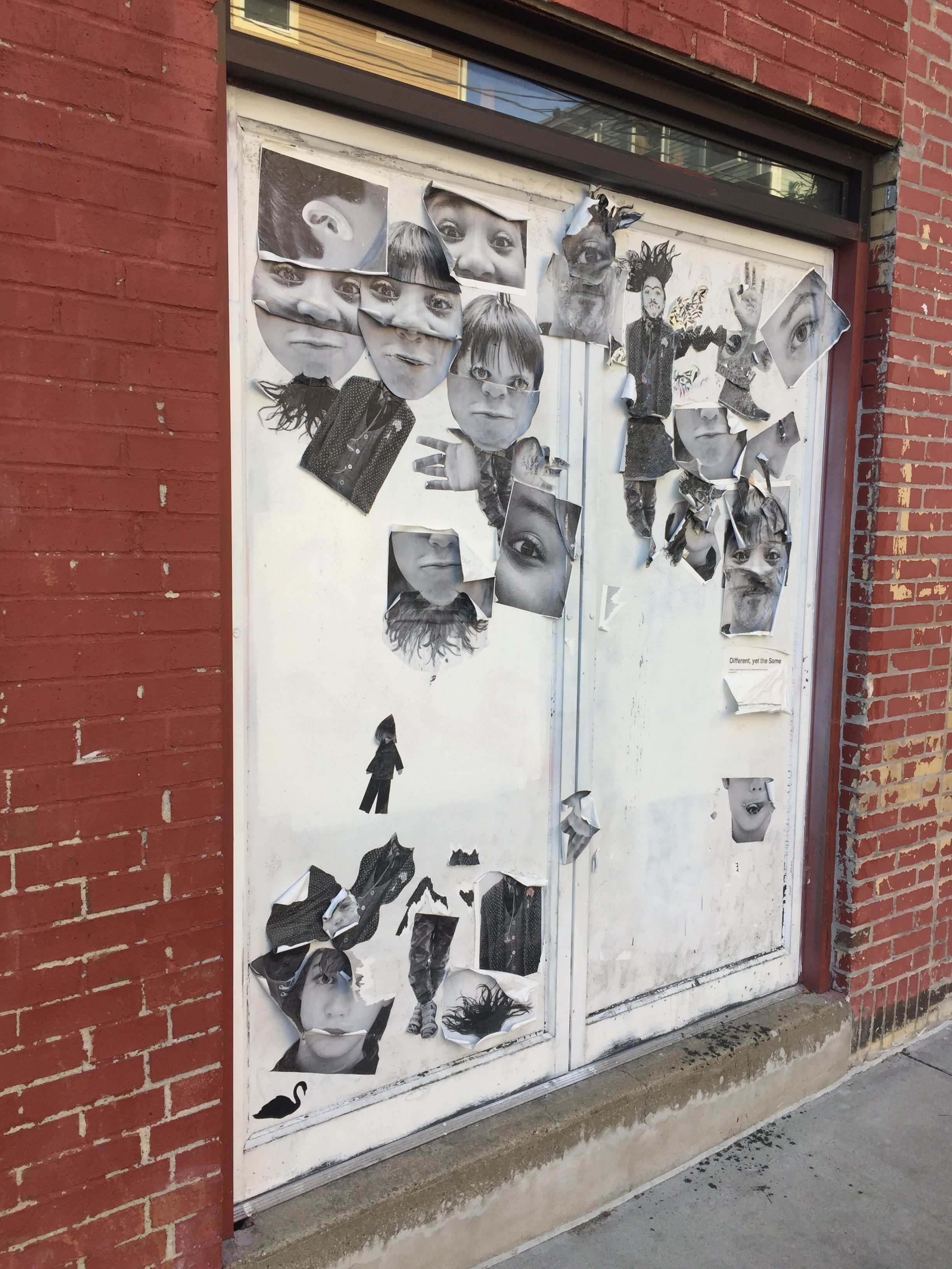

‘The world is through with playcenters. Its children have become too fat, its parents too hurried. They retire now, a slow migration to the American west where a prismatic limbo squirms and coils and degrades in peace, leaching its bitter revenge into the countryside.
Just three hours west of Brookings, ‘The Playcenter Recycling Facility’ twists like an ancient worm, emerging from the earth in knots of lurid plastic and psychedelic, sun-bleached towers. A small warehouse presses itself against the boundary of the property and purports to be the key functioning piece in the recycling process, but the rainbowed landscape only grows, bulging further into the sky with every year.
Trespassing on the ‘Facility’s’ grounds is forbidden, in theory, but every few months a bright tube hangs down over the fencing or burrows up from the dirt, pressed outward by the growing mass. The curious may enter here but are advised to listen for the ‘Facility’s’ employees, who come around occasionally like gardeners to trim back the encroaching maze.’
It’s a few weeks of circling the area before news of an emerging tendril surfaces on an otherwise abandoned internet forum, another day of surveilling ‘The Playcenter Recycling Facility’ before I feel confident that its cameras aren’t functional, or if they are, that nobody responsible is watching. Three people enter the through an orange tube that has erupted on the ‘Facility’s’ eastern side. One person exits and I can’t say for sure whether it’s one of the three.
I am the fourth to enter on my watch, slipping into the dark orange tunnel and following its curve under the fence. My goal is to find an exit early, to squeeze along the outside of the ruinous architecture, but there is no clear exit- only the occasional window, the size of a child’s smiling face.
I become irrevocably lost and spend the night in a tower, curled in a dirty quilt. The boundaries of the facility seem impossibly far away. The sunset casts shadows in colors previously unknown. The plastic sings a creaking song and eventually I sleep.
Daytime in the ‘Facility’ is oppressively warm and the greasy handprints of past children slide from the walls and pool in unlikely places. I am haunted by the spectral scent of french fries and burgers while my own food, what I brought with me, is rationed in portions that only serve to make me hungrier.
The idea that I might die in the ‘Facility’ ceases to be a joke.
I find, at the center of the tubing, a massive lake of plastic balls and I watch long enough to see it shift. I refuse to enter, but having found it once I spend the next day avoiding it, taking new paths, climbing and sliding, only to find myself returned to its shores. There is a force like gravity at the center of ‘The Playcenter Recycling Facility,’ and it holds me there for a time.
Hungry and tired, I find myself facing a slide in dark purple. It is steep and I am high, high up in the labyrinth. It will take me to the exit, I think, or to the lake. It has the promise of finality about it and, at its precipice, I am ready for an end.
-traveler
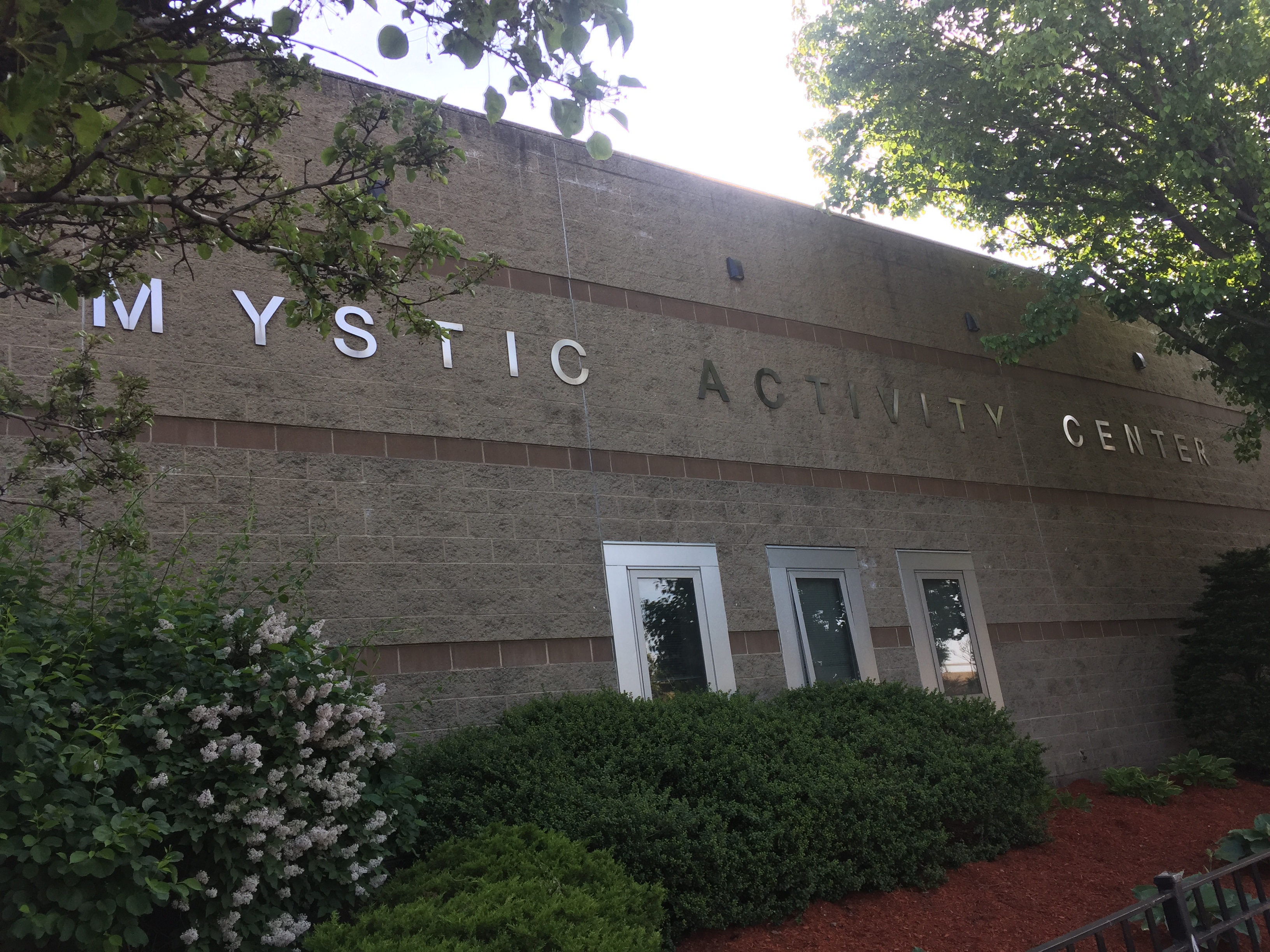
Pickett’s home is deeply stale, his windows painted shut and taped up with plastic. Something moves between the floodlights outside: one of the dogs made indistinct by the cloudy film. The second follows the first- they are nervous and pacing. They realize they have been duped. One growls and the growl builds into a half-hearted bark. The other turns and they are quiet again. How would they describe this dilemma to their master? Better to let the evening’s events unfold as they will. Better to let the master sleep, to gamble on catching the intruder upon his retreat.
One dog stoops to smell the ass of the other.
I revise my narrative: the dogs are idiots. My getting across the yard seemed a lot like luck, and I’m not lucky. This makes more sense. The dogs are just bad at what they do.
A profound feeling of relief comes over me, the same dirty relief we’re taught to resist as a child. This is the relief in seeing that we are better than a situation, not because we’ve risen above it, but because the depths of the world are infinitely low and the odds will statistically fall in our favor some of the time. I do not become a better person for fooling the dogs, but I feel like one.
Pickett snores, which is wonderful for me. It provides a baseline for the success of this intrusion. I listen for Alice’s rattling in its lulls and pull a stretch of carpet from the living room floor, distracted by my reflection in the black glass of an old television. Beneath the carpet, a trapdoor, and beneath the door, a stairway that takes me deep into the earth. I emerge into a place (too big to be a room) that is occupied by statues as far as my feeble light will reveal. Pickett has taken the pieces in a semi-circle from the stairs, inadvertently recreating a theatre in the round. One stands out from the rest, centered as I am on this dark stage.
A statue of Pickett himself.
The statue of Pickett is strange- the form is undoubtedly his, but its details blur and self-censor under the cone of my flashlight. Nearer, I see the details are absent entirely, that they have been eroded. The stone is smooth where I touch it: along the face, over the brow, across the fingers. These places are smooth for having been touched many times before.
Alice’s missing pick peers out from a pile of dust several yards away. From it, I find an entrance to ‘The Maze of Secret Rooms,’ an unsuspecting fissure in the stone that gives way to cramped mildew and creaking wood. I slip into the stone like the Stranger once did in a cave very much like this one.
Thinking of him gives me no relief.
I leave my own statue in Pickett’s yard. I have shrugged off stranger things than that. Let him haul it back into the earth where it can be in peace with the others. Let Pickett be with his business- he isn’t the first man to find his fortune under the ground or to be so worn by it.
-traveler
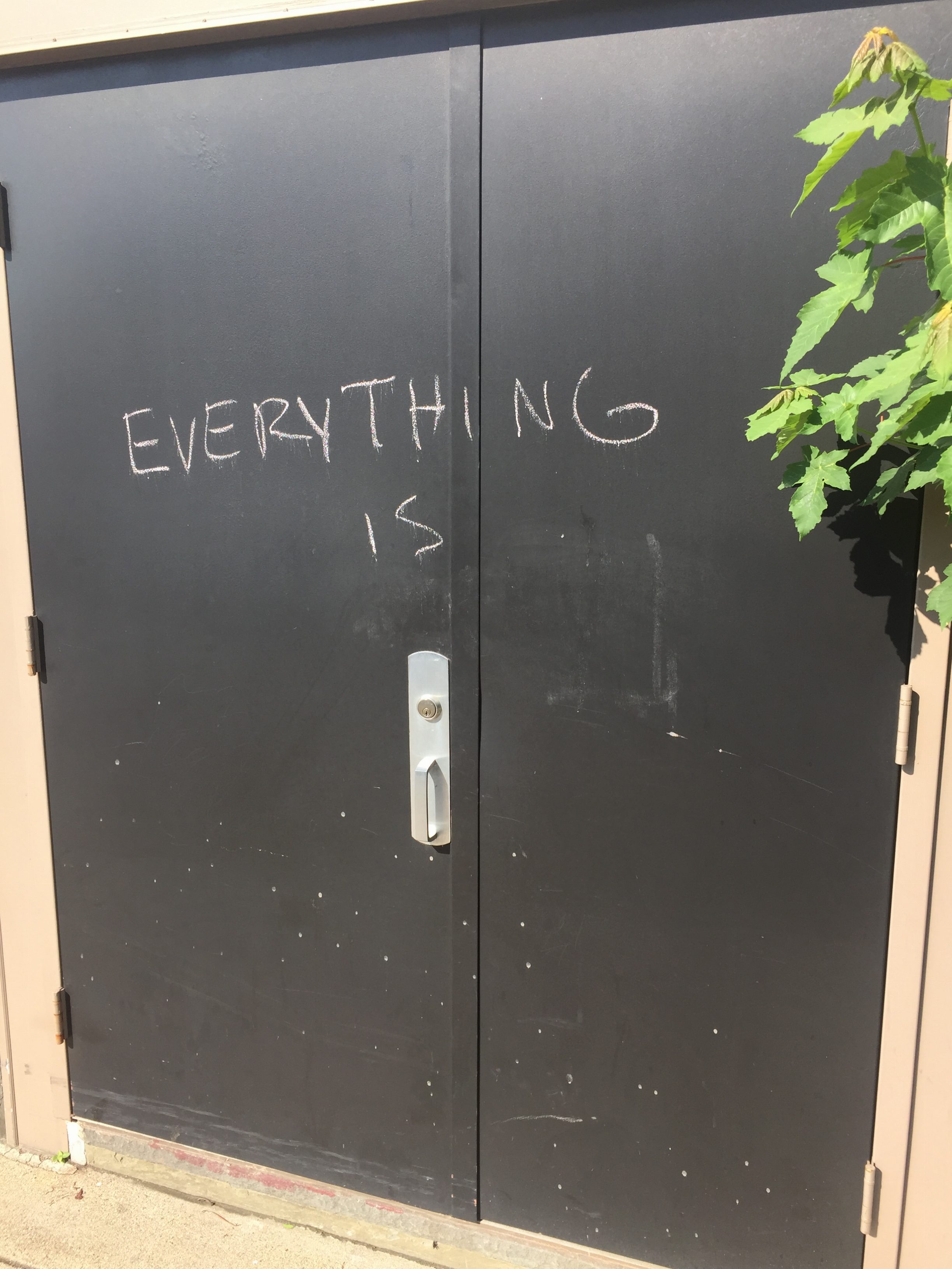
‘There’s a place off the highway that sells statues, the proprietor of which is a man named Daniel Pickett. Pickett lived his life as a self-proclaimed sculptor with little fanfare up until the autumn of 2016 when a local news reporter latched onto his story in a way that was roundly considered ‘ugly.’ Denied a simple fluff-piece interview, the reporter combed through enough blueprints and building permits concerning Pickett’s properties to conclude that there was simply no space in the man’s house that could possibly serve as a studio for pieces his size. The reporter would go on to stake out the Pickett property for his money shots- pictures of some truck dropping off pre-made, non-local statues.
But the trucks never came.
And Pickett hauled up new statues every morning.
The situation came to a head when the reporter was arrested for trespassing in Pickett’s home. He has spoken to the public only once to confirm that there is no room in the house for creating the artwork- no clay, no kiln, no traditional sculpting tools of any sort. Daniel Pickett has not commented on the matter. His work, which consists entirely of life-size, clay portraits, sells sporadically but for exorbitant amounts, the hands of his customers shaking as they retrieve their wallets. Pickett lives his life with the air of a man that has his business well in order.’
The road has been so smooth these past months that I’ve gotten out of the habit of avoiding potholes. “Pickett’s” comes as a shock to the system, it being a place that will require a little trouble to access. There is, for instance, what the locals refer to as ‘The White Pickett Fence’- a 10’ tall chain-link perimeter, thick with menace and frosted with razors. Pickett’s current pieces stand behind it like stolid refugees, available for viewing during the store’s four open hours per day. Pickett himself is not hard to spot among them, smoking and petting two dogs that acknowledge me long before he does. They follow my approach with trained attention, mouths closed and ears high.
When Pickett does see me, he laughs.
He says: “Don’t I know you from somewhere?” He says this to everyone. “Could’ve sworn I’ve seen you around here before.”
“First time on this side of the state,” I tell him- a lie. I’ve been to every side of every state. I’ve certainly not been here before, though.
“Well, now, let me buzz you in.”
Pickett reaches into the dirty pocket of his flannel shirt and the fence shudders open, sliding along rusted tracks for half a second before halting. I wait, assuming it’s stuck, until I realize he means for me to squeeze through the small allotted space. I do, and it creaks closed behind me.
“Take a look,” he calls from the porch, “Let me know if anything catches your eye.”
The statues, twenty or so, stand in the style of the terracotta army. They are at once amazing, for the workmanship, and dull, for the subjects. Standing among them is like standing on a subway car- their expressions are bored and lifeless for all the attention to detail.
“You’re sure I haven’t seen you around?”
Pickett has snuck up among the statues, breathing sour air over the shoulder of an old woman.
“I’ve got a face everyone recognizes.”
He nods and rubs his nose.
“I’m curious about your technique,” I say and he folds his arms over his chest.
“Hard work,” he says, “Good tools. You an artist?”
“No.”
“Then I doubt you’d understand.” Pickett turns to face the sun and sighs: “We close up in five in case you’re still looking to buy. You dropped something.”
He points to one of Alice’s picks which, in turn, points to Pickett’s house.
“Thanks,” I tell him, and I squeeze back out the fence.
He hauls my statue into the yard early the next day, grunting under its weight. It wears an old jacket of mine, something I lost on the road a few years back (tucked into the booth of a smoke-stained diner). It has more teeth than I do now and it stands awfully still, pointed in my direction despite my being quite some distance away and peering out from behind a cactus with a shitty pair of thrift-store binoculars. I shift, uneasy with the sand beneath my feet, feeling as though I may not be the first to churn a useless divot there.
-traveler
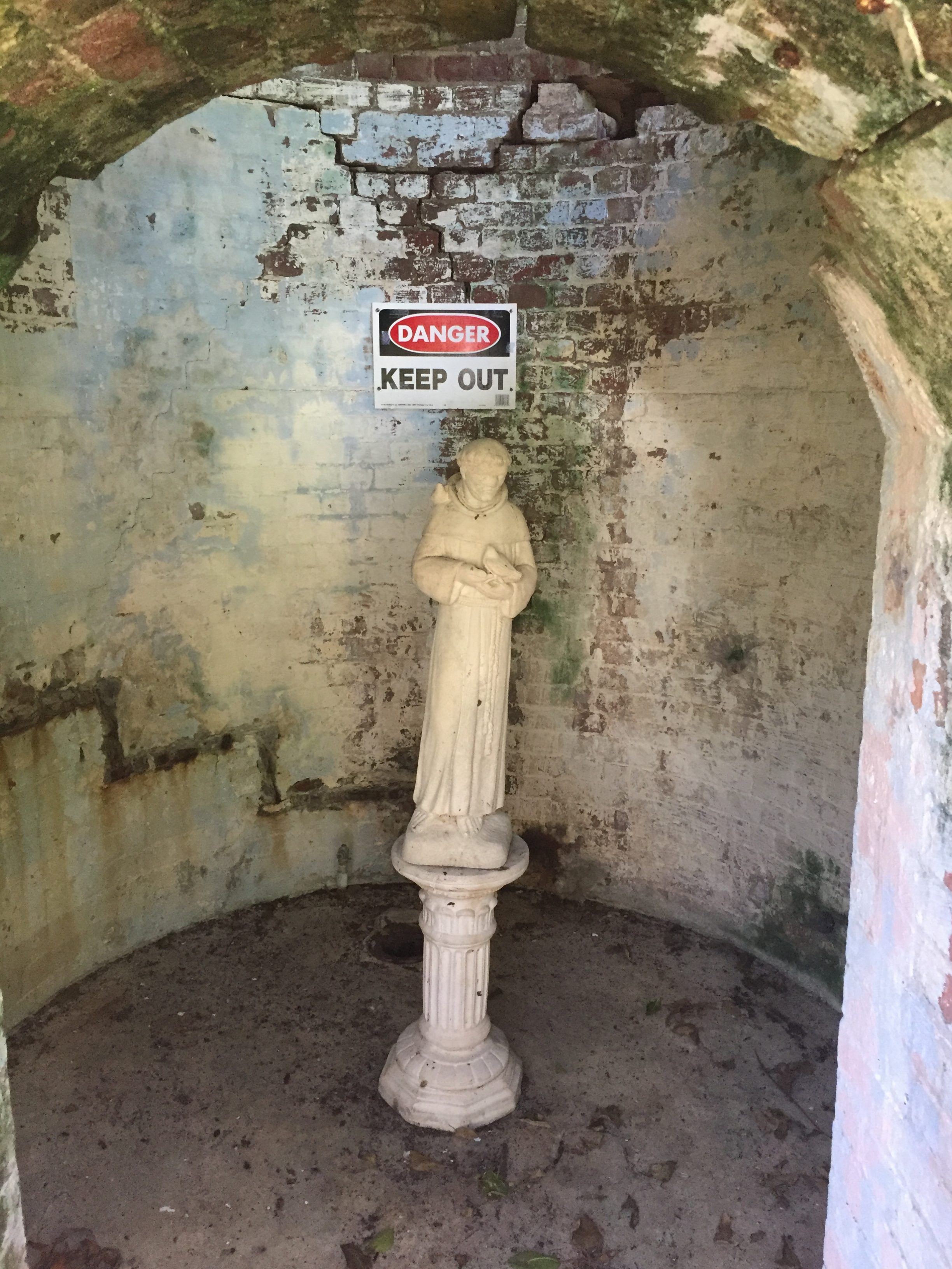
‘‘The Maze of Secret Rooms’ is just one room, really, but it is connected to all other secret rooms in a pattern that could be interpreted as maze-like. A bonafide supernatural marvel, ‘The Maze of Secret Rooms’ remains relatively unknown for two reasons:
1. It is necessarily secret.
2. It is icky.
The archetypal secret room sits on the backburner of the American sub-conscious like a half-remembered nightmare, occasionally reminding us that any mirror on the inside wall of our motel room may be moonlighting as a window. Theoretically, every built-in bookcase or shallow closet holds the potential for an unvetted passage between the walls, every portrait a googly-eyed peephole for imagined ne’er-do-wells. The occasional news report of a cramped pervert and his unconventional use of a ventilation duct fuels the backburner: the exceptional making monsters of the mundane.
‘The Maze of Secret Rooms’ may well be a manifestation of the same archetype, it being a grim, dusty place that sits behind every existing secret room and makes a small effort at ironic justice. Most visitors stumble upon the room accidentally and most assume it is vestigial space of their own home, sealed away for the renter’s benefit (and most are happy to seal it again). Those who dig deeper find a strange jigsaw of trapdoors, crawlspaces, and gaps between floorboards that look into unfamiliar, faraway spaces. ‘The Maze of Secret Rooms’ presents an uncomfortable lens through which to view the lives of Americans, one that allows its discoverers to become the very person they always assumed might be watching.’
A man sits on his heels, his left eye pressed to the inside of a wall. His breath emerges in deep, billowing clouds.
A group of people in a cramped space speak in angry whispers.
A child lays flat in a narrow crawlspace, its eyes following footsteps above.
Through a keyhole I see an army of statues, men and women standing with rigid backs. It’s dark in the room, but I see myself in stone, clear as day. At Alice’s tapped suggestion, I slip one of her picks through the aperture and leave ‘The Maze of Secret Rooms’ and then the secret room inside ‘The House of Wallpaper and Carpet,’ now exposed. The sun has set and I take my chances sleeping on the plush floor of an empty bedroom. By morning time, ‘The Maze of Secret Rooms’ has vanished.
Alice swings about the speedometer, sure of the path to reunion.
-traveler
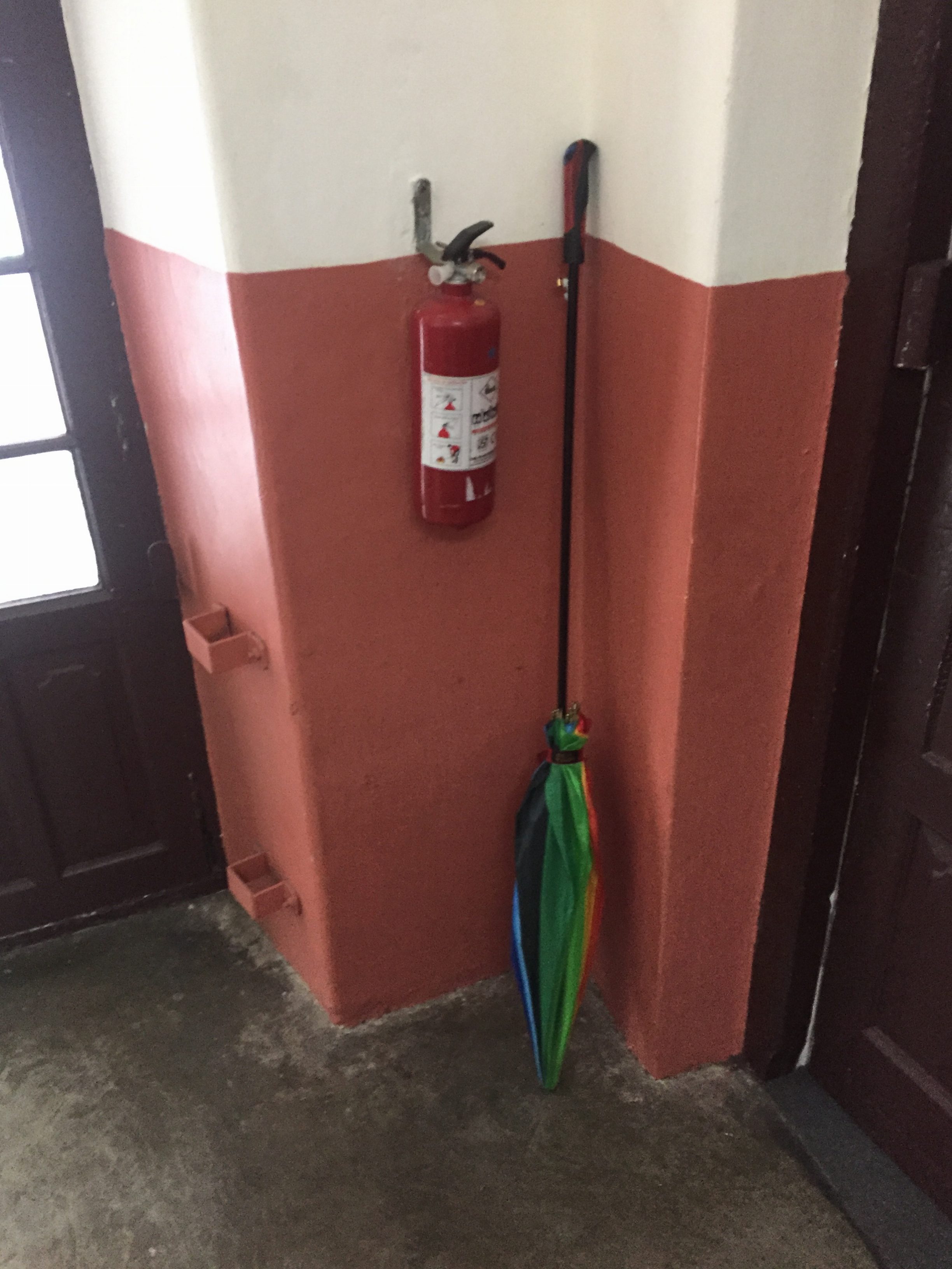
© 2024 · Dylan Bach // Sun Logo - Jessica Hayworth